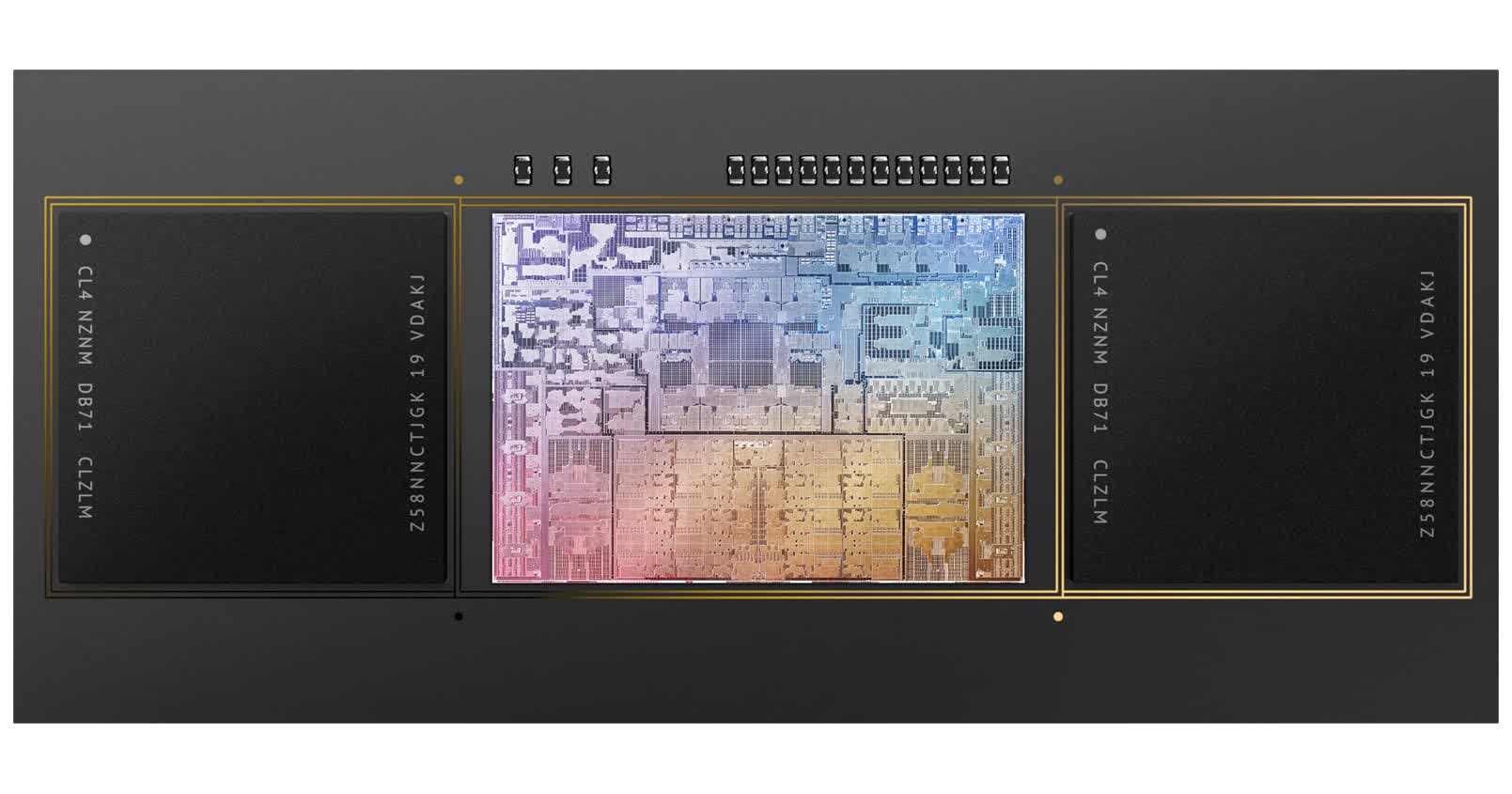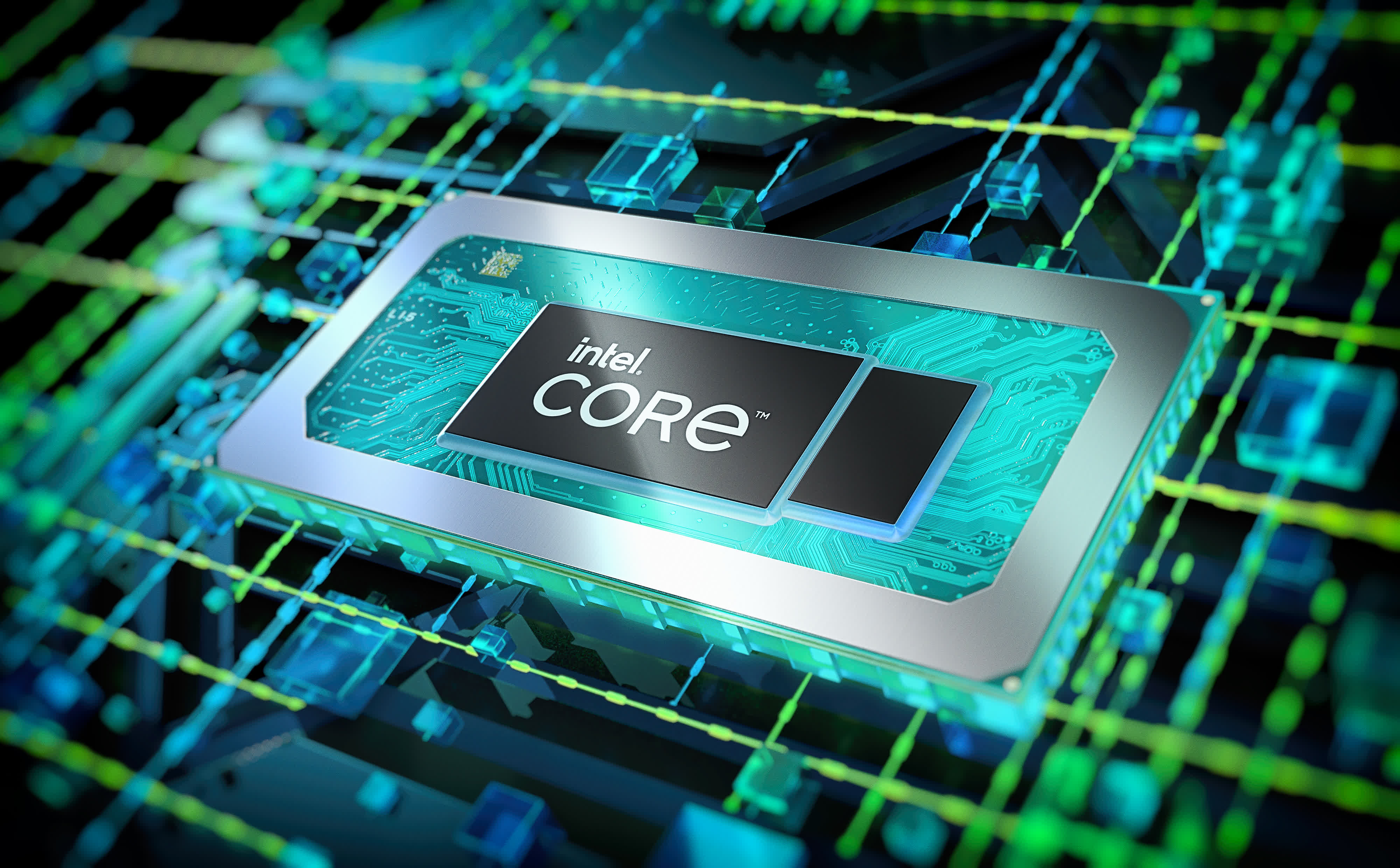In context: Ever since Apple started its transition away from Intel processors, every incarnation of Apple Silicon has been pitted against both mobile and desktop processors from Intel and AMD. Now that the M1 Pro and M1 Max have been out, reviewers are looking into how they compare against Intel's 12th Gen mobile offerings.
This week, PCWorld took a look at how the 14-core Intel Core i9-12900HK compares against the previous Rocket Lake flagship CPU and the AMD Ryzen 9 5900HX. The analysis revealed that at least in the realm of Windows laptops, Intel's mobile Alder Lake flagship offers the best performance in a variety of tasks and also affords plenty of battery life thanks to its eight efficiency cores.
Macworld took the opportunity to compare Geekbench and Cinebench results between the Core i9-12900HK and Apple's M1 Pro and M1 Max chipsets, equipped with 10-core CPUs. It found the Intel part was slightly faster than both pieces of Apple silicon, which is a different story than that told by early engineering samples of the Alder Lake CPU.

Apple silicon usually shines bright in Geekbench 5, but the Core i9-12900HK managed to score 1,838 points in the single-core test and 13,235 points in the multi-core. Those scores are only a few percent better than the M1 Pro and M1 Max, but it's a lead nonetheless. When it comes to the Geekbench 5 OpenCL test, the Intel Iris Xe stands no chance against the 16-core GPU in the Apple M1 Pro, let alone the 32-core GPU in the M1 Max, which is almost three times faster.
The Core i9-12900HK is also faster in Cinebench R23, where it manages 1895 points in the single-core and 15,981 points in the multi-core test. The 10-core CPU in the Apple M1 Pro isn't slow by any means, but it doesn't come too close at 1,531 points and 12,381 points, respectively.

It's worth noting that while the Alder Lake advantage is evident in these benchmarks, it comes at the cost of higher power consumption. We already know that energy efficiency is what elevates the M1 Pro and M1 Max into a class of their own, but the Core i9-12900HK can't compete when it draws over two times the power, and at times it will even spike to 140 watts. The MSI GE76 Raider that PCWorld and Macworld used in their testing is also double the price at $3,999, so take that as you may.
Apple expects to complete the transition to first-party silicon this year by introducing a new Mac Pro that could be powered by a monster chip with up to 40 CPU cores and 128 GPU cores. Intel CEO Pat Gelsinger wants to earn back Apple's business by outcompeting it, so it looks he has his work cut out for him. Taiwan Semiconductor Manufacturing Company's founder says time is against Gelsinger and his ambitions, but we'll have to wait and see.
